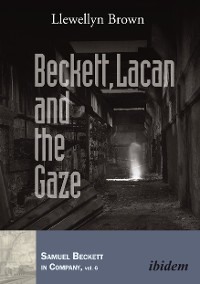
Полная версия
Beckett, Lacan and the Voice
Thus the voice reveals itself to be of a great complexity, combining personal and impersonal, objective and subjective, corporeal and mechanical, sound and silence, language and its beyond. Faced with this fundamentally paradoxical nature, we have to determine the approach that will enable us to study it, while binding these diverse elements together.
Lacan and the Voice: A Preliminary Overview
The enigmatic nature of the voice requires to be approached in a coherent manner, with adequate conceptual tools which, as this study will endeavour to demonstrate, are offered by the theories of the French psychoanalyst, Jacques Lacan. Indeed, among the particular innovations Lacan contributed to psychoanalysis after Freud—and which is particularly enlightening for Beckett—is the very concept of the voice. While the latter has been firmly established as a concept in Lacan’s theoretical developments as a whole, Mladen Dolar rightly points out that in his early elaborations, it often took second place by comparison with the gaze,[9] even though it ‘can be seen as in some sense even more striking and more elementary’ (2006, 39).
Lacan specifically situated the voice among the ‘objects’ that a subject uses to give a grounding to his reality, in an effort to hem in and keep at bay an uncontrollable force. The voice is thus not an abstract notion, nor is it a neutral phenomenon: it is a material element situated at the very heart of a subject’s existence. More precisely, it is inherent in the fact that the subject is founded in language, the consequence of which is that saying—or enunciation—is distinct from the utterance.
This grounding is crucial, but Lacan also renders possible the further discrimination between the voice that insists as the hidden and unconscious side of speech, and its complete exteriorisation for the psychotic (1998, 480): the ever-present threat of it forcefully intruding and destroying any coherent subjective reality. This will be apparent in the vociferation of the superego: that is to say, the fact that language, in the universal logic it imposes, is experienced in the form of an imperative that, in its ultimate consequences, demands the subject’s complete suppression. In a movement that counters such an extreme outcome, Lacan situates enunciation as the way a subject ‘gives voice’ (donner de la voix) in order to silence this destructive Other. An additional contribution Lacan makes regarding the structure of the voice, resides in the fact that language does not form a complete and totalising system, but is affected by an insurmountable hole, with the consequence that nothing can ultimately silence the voice by enclosing it within the bounds of a final naming. In both of these cases, the subject is obliged to invent, which is where the work of creation intervenes.
Lacan and Beckett: Affinities?
The voice is thus one crucial psychoanalytical category developed by Lacan, whose theoretical elaborations, such as this one, have largely surpassed the notions used by other schools of psychoanalysis; the latter having, in general, adopted a number of Lacanian concepts. This situation is particularly true as a result of Lacan’s deepening of Freud’s findings and insights, oriented towards the real, that is to say, a dimension that resists any circumscribing by a subject’s personal ‘world view’, or by the regularity of fixed laws. While post-Freudian theories often remain caught up in the confined sphere defined by the ‘Name-of-the-Father’—the agent presiding over the family-centred Œdipal scenario—Lacan ended up reversing his own notions of the unconscious ‘structured as a language’ whereby strict rationality appeared capable of accounting for a subject’s destiny. Hence it would appear that to limit one’s scope to earlier theoretical elaborations would be comparable to studying physics from exclusively Newtonian laws. These considerations, alongside factors such as intellectual trends of the moment, have doubtless led a number of critics to integrate Lacanian findings into their works.
It is indeed true that a number of psychoanalytical notions—starting with Freud, but also including various aspects of Lacanian theory—are regularly quoted in academic publications. Surprisingly however, looking at critical studies on Beckett more closely, it seems clear that Lacan’s effective presence has been minimal. One reason for this situation in France is that Lacan did not devote full articles to Beckett, as he did to writers such as Marguerite Duras, Paul Claudel, Jean Genet or James Joyce. In spite of this, it can be asserted that Lacan’s work—particularly in its later developments—is singularly relevant to the reading of Beckett. Indeed, Suzanne Dow, for example, has seen in him a ‘silent partner’ of Lacan, ‘in the sense that he functions in the period 1968–71 as a figure aligned with psychoanalytic discourse as a “discourse without speech”—that is, the obverse of the discourse of the master […]’ (14).
A brief enumeration of points of convergence will give an overview of their affinities. Both were concerned with the part of existence that lies beyond the comforting fundamental fantasy—fiction, or world view (Weltanschauung)—that supports the ideals, the goals and meaning most people


